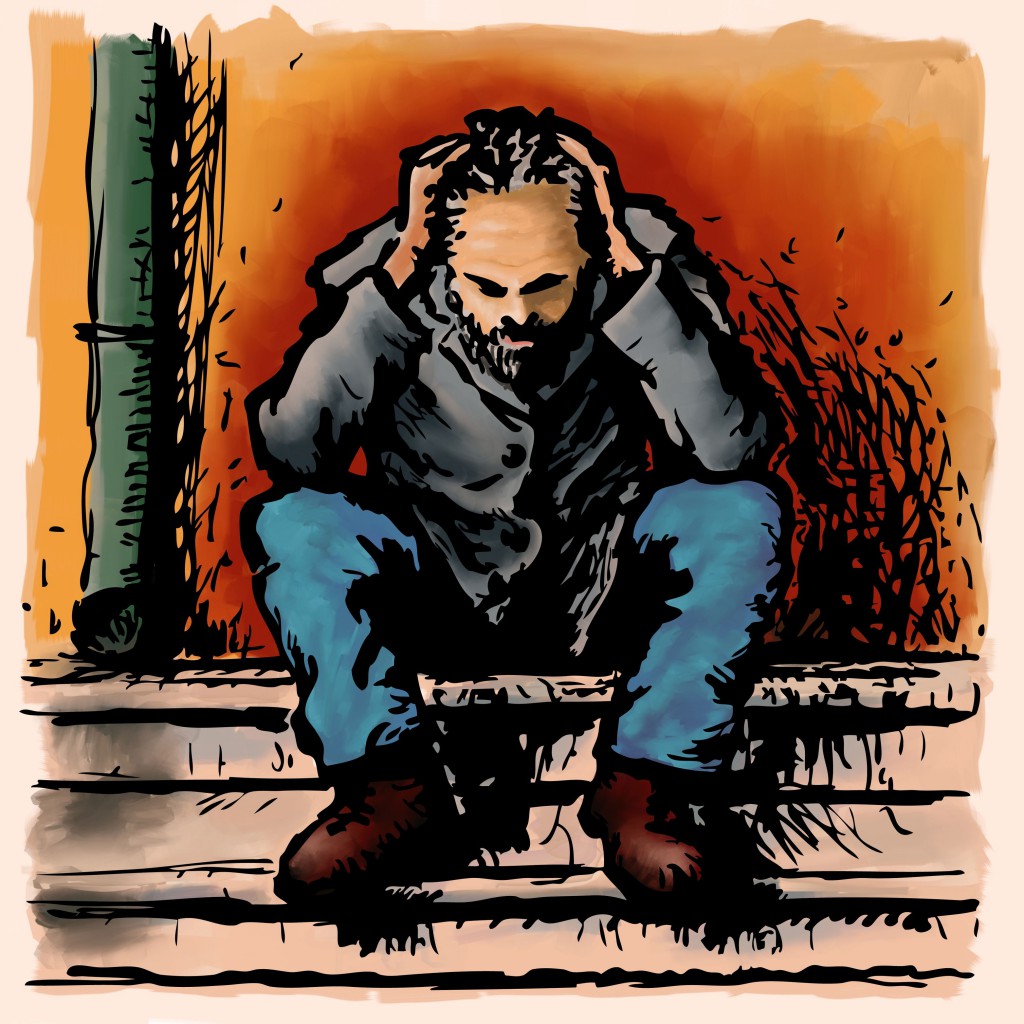
By Fr Peter Day
“The small room is bulging with people. Some are on chairs, some on the floor while others straddle the staircase. The air reeks of body odour and cigarette smoke. The priest sits on a tired, dirty sofa and shares a laugh with those near him, while the house dog rests comfortably under the altar: a low lying, wooden coffee table. Mass is about to begin at Cana: a community house in inner-city Sydney that offers prayer, support and friendship to people on the margins. It is always a special occasion, too, because it is one of those rare moments when the Eucharist is indeed a banquet for all: the homeless, mentally ill, university graduates, pimps, religious, addicts, professional types, street workers, students, seminarians, and anyone else so inclined.” – Mass at Cana – August 1991
It was at Cana where I first met Dennis Kearney: a truly princely man whose battle with mental illness led him to the misery of asylums, the streets, and hostels for the lonely.
Mr Kearney was tall and thin, at least six foot three – and a two-pack-a-day smoker. He walked with a confident, elongated gait, and spoke the Queen’s English as it should be, ‘proper like’.
He enjoyed a truly catholic faith, spending time on Baptist, Anglican, Salvation Army, Catholic and Evangelical ‘pews’ throughout the city. He was especially fond of the Mass.
He loved clothes. It was unusual to see him without a combination of hat and tie and jacket; sometimes the tie was replaced by a cravat, and he always tried to wear nice trousers. But rarely did he wear anything new – the cigarette budget made sure of that.
So he tended to be a clothing horse for unwanted hand-me-downs that he picked up from a small clothing room located on the ground floor of his hostel: a three-storey monstrosity with 80 odd rooms for homeless men, mostly alcoholics, run by St Vincent de Paul.
And while his secondhand ensembles tended to be messy mix-and-match affairs featuring zipper-less trousers, stained shirts, and shoes that allowed toes to be seen, what he wore, he wore proudly, regally.
He loved animals. His face would always light up when a dog, or cat, or guinea pig allowed him some patting time. Hello, beautiful creature, it’s good to be with you, his eyes would sing.
He loved plants. I remember walking back to Surry Hills with him from a funeral at St John’s Church, Kings Cross; normally a leisurely 15 minutes’ walk but, on this occasion, 45.
Every hundred or so metres we would stop while Mr Kearney stroked a plant as though he was greeting a friend, all the while sharing with me its common and Latin names, its origins and what climate best suited its thriving.
He loved people but he wasn’t sentimental or outwardly affectionate – except towards animals and plants, of course.
Rather, it was the way he wore humility and dignity and silence and suffering that belied a deep respect for others, for life.
Every so often, when I was on duty at St Canice’s soup kitchen, he would come in and, without saying a word, pull out from his coat pockets a couple of bread rolls.
It was his way of thanksgiving, and what better way than an offering of Bread.
While my encounters with him tended to be fleeting at best, with very few words spoken other than pleasantries, there was never any prolonged conversation.
I don’t think I’ve held anyone in such high regard, and I don’t know why. I really loved him. He was a holy man.
Every now and then I look back fondly on a brief 18-month period in which I occupied a space at Mr Kearney’s hostel. I used to earn my keep by cleaning some of the rooms, his included.
Vacuuming his floor, clearing out his ashtray and making his bed became a sacred ritual for me: something akin to washing the feet of a Teacher.
It all seems rather strange, this admiration, and I’m loath to project sentimentalism. I can only turn to an old spiritual director of mine to make some sense of it all.
He once told me that he would often imagine Jesus wandering the streets disguised in rags, as if to test our humanity. “The question is,” he mused, “How in my life have I greeted this hobo?”
I have no doubt that Jesus would have been very comfortable wandering the streets in Mr Kearney’s skin. I think this is why I loved him so.
He had no beauty or majesty to attract us to him, nothing in his appearance that we should desire him. He was despised and rejected by mankind, a man of suffering, and familiar with pain. Like one from whom people hide their faces he was despised, and we held him in low esteem. He was oppressed and afflicted, yet he did not open his mouth … After he has suffered, he will see the light of life and be satisfied; Therefore I will give him a portion among the great, and he will divide the spoils with the strong … (Isaiah 53: 2-3, 7, 11-12)